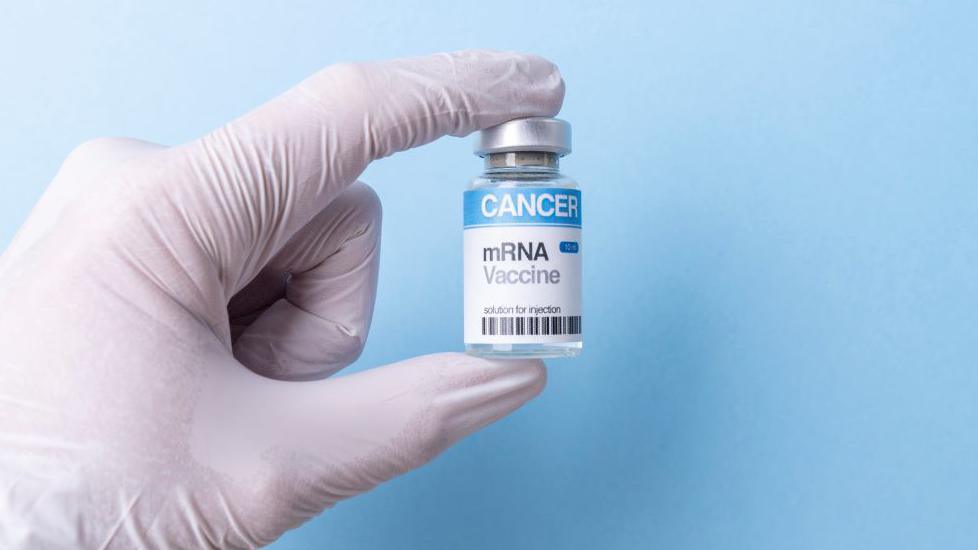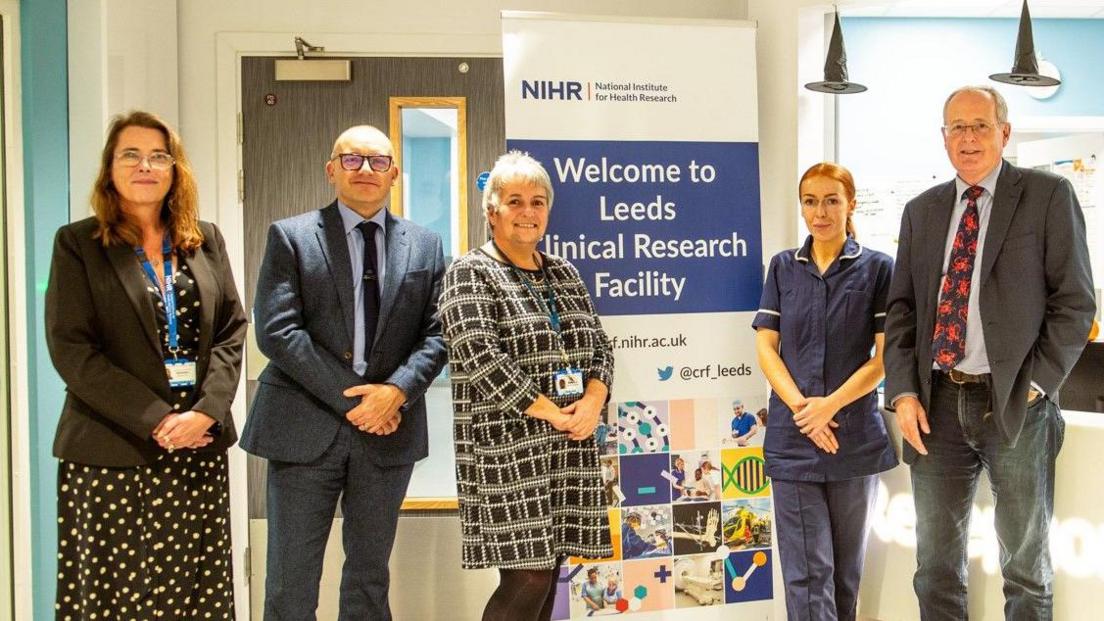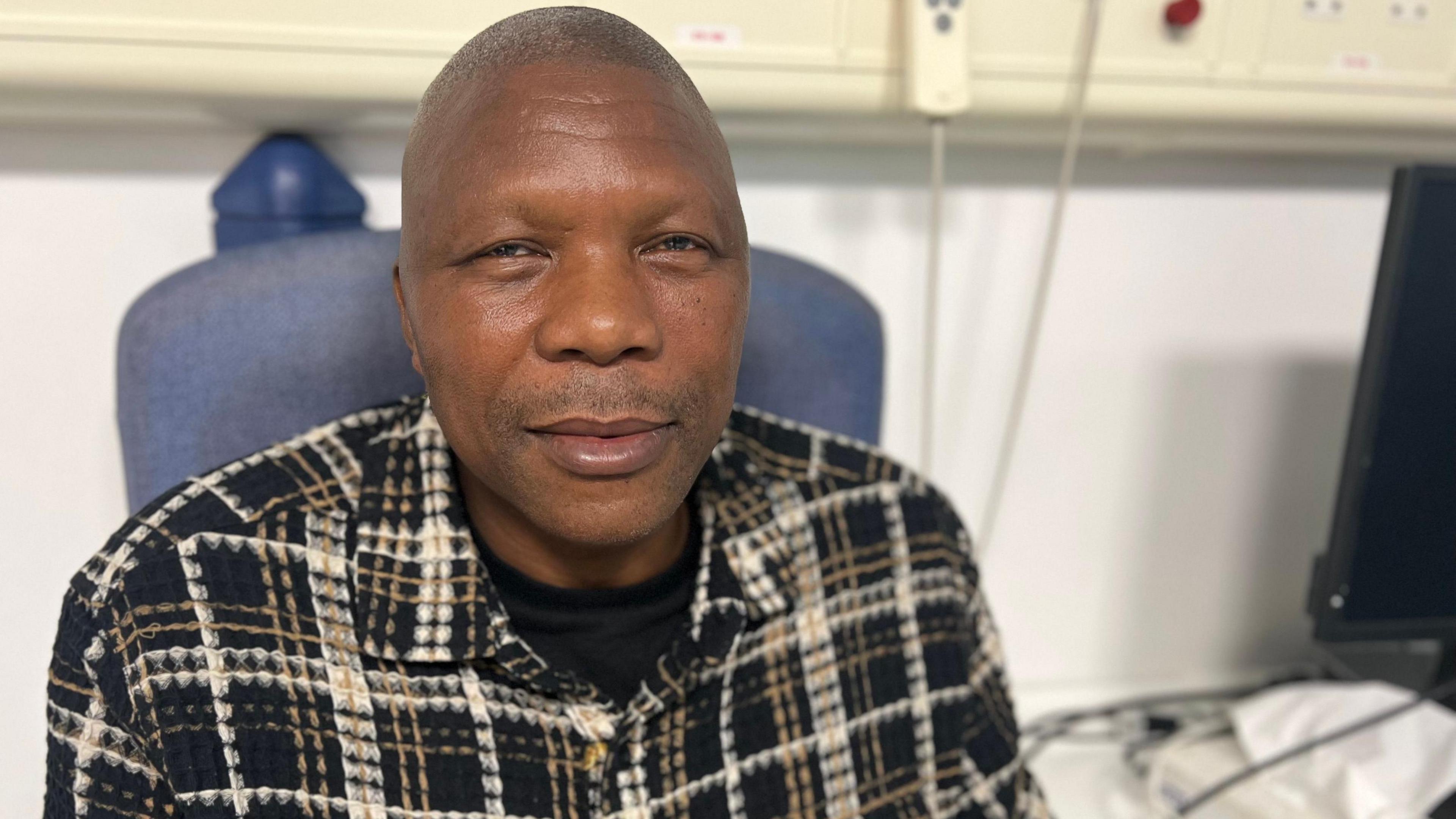Cancer patients to join personalised vaccine trial

The cancer vaccine trial uses mRNA technology like that found in Covid jabs
- Published
Cancer patients in Leeds could be invited to take part in a trial of a new type of treatment using personalised vaccines in a bid to help stop the disease returning.
Leeds Teaching Hospitals NHS Trust said it would refer eligible people to an NHS programme to boost participation in the trial, which uses mRNA technology like that found in Covid jabs.
The vaccines were designed to prime the immune system to recognise and destroy any remaining cancer cells and reduce the risk of the disease recurring, the trust said.
Professor Chris Twelves, from the trust's Clinical Research Facility, said the advent of such anti-cancer treatments was "a real game-changer".

Leeds has been picked to join the national programme because of its diverse population
Prof Twelves said people with early stage bowel cancer were currently being recruited for the trial, but if the results continued to be encouraging, then the vaccines could be used for people with other cancers.
So far a "handful" of patients from Leeds had been picked as being suitable for the trial, which was being run at The Christie NHS Foundation Trust in Manchester, he said.
Leeds had been chosen to work on the Cancer Vaccine Launch Pad programme because of the city's diverse population, Prof Twelves added.
"There are real health needs of the people in Leeds and there is an increasing awareness among doctors and drug companies that we want to develop treatments here that are relevant to the poeple who need them the most," he said.
What is a personalised cancer vaccine?
Vaccines are usually designed to prevent disease, but cancer vaccines are created as a treatment once someone has been diagnosed.
Patients who agree to take part have a sample of their cancer tissue and a blood test taken.
The cancer vaccines being trialled are based on a molecule called mRNA, the same technology used for the Covid-19 vaccine.
They are created by analysing a patient’s tumour to identify mutations specific to their own cancer.
Using this information, medics can create an individualised cancer vaccine.
Just as with conventional vaccines, these then prime the immune system to look for an enemy, in this case the patient’s cancer, and potentially destroy any remaining cancer cells.
'Living longer'
Prof Twelves, who is also a cancer consultant, stressed the importance of clinical trials in developing successful treatments for the disease.
"When we take a new drug and look to see whether there are promising signs and then look at it in larger groups and see there is, indeed, an advance in current treatment, then that's the way we really take cancer treatments forward," he said.
"That then translates into people with cancer now living longer, having more patients cured and an improved quality of life.
"And that really is all building on people taking part in clinical trials such as this vaccine study."
Listen to highlights from West Yorkshire on BBC Sounds, catch up with the latest episode of Look North or tell us a story you think we should be covering here, external.
Related internet links
- Published31 May 2024
